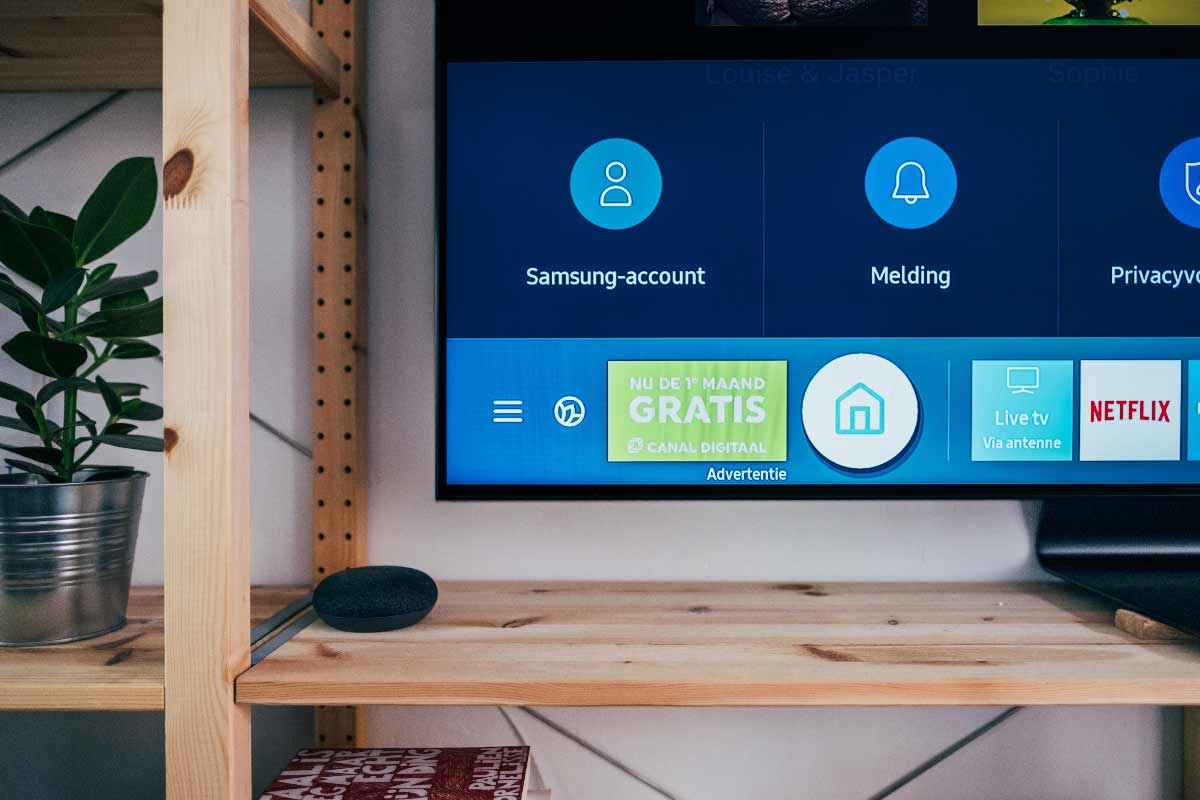Samsung, a brand that has made a name for itself in the world of electronics, is renowned for its top-of-the-line televisions. But, when it comes to purchasing a Samsung TV, it’s crucial to take into account the longevity of the product. Knowing the lifespan of Samsung TVs can be a game-changer when it comes to making an informed decision about your next television.
In this article, we’ll dive into the various factors that impact the lifespan of Samsung TVs and offer valuable insight into how long you can anticipate your Samsung TV to endure.
Table of Contents
Factors Affecting the Lifespan of Samsung TVs
The longevity of a Samsung TV is a multifaceted issue that is influenced by a variety of factors. These factors can be categorized into five main areas, each of which has a significant impact on the lifespan of your TV.
First, usage is a key factor that can affect the lifespan of your Samsung TV. The more you use your TV, the faster it will wear out. This is because the components inside the TV are subjected to more stress and strain, which can cause them to degrade over time. If you use your TV for several hours every day, it will likely have a shorter lifespan than a TV that is only used occasionally.
Second, the quality of the components used in your Samsung TV can also have a significant impact on its lifespan. Higher quality components are generally more durable and can last longer than lower quality components. This means that if you invest in a TV with high-quality components, it is likely to last longer than a TV with lower quality components.
Third, the environment in which your Samsung TV is used can also affect its lifespan. TVs that are exposed to extreme temperatures, humidity, or dust can wear out faster than those that are kept in a controlled environment. This is because these environmental factors can cause the components inside the TV to degrade more quickly.
Fourth, regular maintenance can help extend the lifespan of your Samsung TV. This includes cleaning the screen and vents, checking for loose connections, and updating the software. By taking care of your TV in this way, you can help ensure that it lasts for many years to come.
Finally, the model of your Samsung TV can also affect its lifespan. Some models are built to last longer than others, so it’s important to do your research before purchasing a new TV. By choosing a high-quality model that is designed to last, you can help ensure that your TV lasts for many years to come.
Overall, the lifespan of a Samsung TV is a complex issue that is influenced by a variety of factors. By taking care of your TV and choosing a high-quality model, you can help ensure that it lasts for many years to come.
Average Lifespan of Samsung TVs
There are several factors that can impact the longevity of these TVs, including usage, maintenance, and model.
It’s worth noting that the lifespan of a Samsung TV can be significantly shortened if it’s used for extended periods of time. Similarly, if the TV isn’t properly maintained, it can develop issues that can lead to a shorter lifespan.
The model of the Samsung TV is also a crucial factor to consider. High-end models tend to last longer than their low-end counterparts due to the superior quality of materials and components used in their construction.
The average lifespan of Samsung TVs is 7-10 years. However, this estimate is subject to a wide range of variables, including usage, maintenance, and model. To ensure that your Samsung TV lasts as long as possible, it’s essential to use it responsibly, maintain it properly, and invest in a high-quality model.
Tips to Extend the Lifespan of Your Samsung TV
Samsung TVs are renowned for their exceptional display quality and advanced features. However, as with any electronic device, they have a finite lifespan. To ensure that your Samsung TV lasts as long as possible, we have compiled some tips to help you extend its lifespan.
First, it is crucial to keep your TV clean. Accumulated dust and dirt on the surface of your TV can cause it to overheat and reduce its lifespan. Therefore, it is essential to use a soft cloth to wipe the screen and the body of the TV regularly.
Second, it is vital to avoid exposing your TV to extreme temperatures. Samsung TVs are designed to operate within a specific temperature range. Therefore, it is crucial to avoid exposing your TV to direct sunlight or near a heat source.
Third, it is essential to use a surge protector to protect your TV from power surges and voltage spikes. Power surges can damage your TV’s internal components, leading to a shorter lifespan.
Fourth, it is crucial to turn off your TV when not in use. Leaving your TV on for extended periods can cause it to overheat and reduce its lifespan. Therefore, it is essential to turn off your TV when you’re not using it or use the sleep mode feature to conserve energy.
Last, it is crucial to avoid moving your TV frequently. Moving your TV frequently can cause damage to its internal components, leading to a shorter lifespan. If you need to move your TV, handle it with care and avoid dropping it.
By following these tips, you can extend the lifespan of your Samsung TV and enjoy its high-quality display and advanced features for years to come.
Signs Your Samsung TV Needs Repair or Replacement
Samsung TVs are renowned for their durability and longevity, but even the most robust devices can experience issues that require repair or replacement. Here are some telltale signs to keep an eye out for:
Flickering or distorted picture
If you’re noticing that your Samsung TV’s picture is flickering or distorted, it could be a sign of a faulty display panel or a loose connection. This issue can often be resolved by a professional repair technician, but it’s important to act fast before the problem worsens.
No sound
If your Samsung TV is producing no sound, it could be due to a faulty speaker or audio output. This issue can often be resolved by replacing the speaker or repairing the audio output, but it’s important to diagnose the root cause of the problem before taking any action.
Slow or unresponsive remote
If your Samsung TV’s remote control is slow or unresponsive, it could be due to a faulty remote or a problem with the TV’s infrared sensor. This issue can often be fixed by replacing the remote or repairing the sensor, but it’s important to test the remote’s functionality before making any changes.
Power issues
If your Samsung TV is not turning on or is turning off unexpectedly, it could be due to a faulty power supply or a problem with the TV’s internal components. This issue may require professional repair or replacement, so it’s important to consult with a technician before attempting any DIY fixes.
Burn-in
Burn-in is a phenomenon where a static image is displayed on the screen for an extended period, causing permanent damage to the display panel. If you notice burn-in on your Samsung TV, it may be time to consider a replacement, as this issue is often irreversible.
In general, if your Samsung TV is experiencing any issues that cannot be resolved through basic troubleshooting, it may be time to consider repair or replacement. However, it’s important to weigh the cost of repair against the cost of a new TV to determine the best course of action.
Wrapping Up: Making the Most of Your Samsung TV’s Lifespan
In the realm of television technology, Samsung has established a reputation for producing durable and long-lasting products. However, there are certain measures that can be taken to maximize the lifespan of your Samsung TV. First, it is imperative to maintain a clean and dust-free environment for your TV. This can be achieved by regularly wiping it down with a soft cloth. Second, it is crucial to avoid exposing your TV to extreme temperatures or humidity, as this can lead to damage of the internal components. Third, it is advisable to refrain from leaving your TV on for extended periods of time, as this can result in overheating and a reduction in its lifespan.
Last, it may be beneficial to invest in a surge protector to safeguard your TV from power surges and voltage spikes. By adhering to these simple guidelines, you can ensure that your Samsung TV remains functional for many years to come.
Frequently Asked Questions
How long do Samsung TVs typically last?
The lifespan of a Samsung TV can vary depending on usage and maintenance, but on average, they can last anywhere from 5 to 10 years.
What factors can affect the lifespan of a Samsung TV?
The lifespan of a Samsung TV can be affected by factors such as usage, maintenance, environmental conditions, and the quality of the components used in the TV.
Can a Samsung TV be repaired if it stops working?
Yes, Samsung TVs can be repaired if they stop working. However, the cost of repair may vary depending on the issue and the age of the TV.
Is it worth repairing a Samsung TV or should I just buy a new one?
It depends on the cost of the repair and the age of the TV. If the cost of repair is high and the TV is old, it may be more cost-effective to buy a new one. However, if the TV is relatively new and the cost of repair is reasonable, it may be worth repairing.
What can I do to extend the lifespan of my Samsung TV?
To extend the lifespan of your Samsung TV, you can take steps such as keeping it clean, avoiding exposure to extreme temperatures, using a surge protector, and turning it off when not in use.

